The culinary world is always evolving, and kitchen professionals are on a constant quest to enhance the efficiency and effectiveness of their cooking methods. One question that often arises in this context is: Does cast iron work with induction? Understanding the compatibility between cast iron and induction cooktops is essential for creating seamless cooking experiences. In this comprehensive guide, we'll delve into the intricacies of how cast iron interacts with induction, providing you with the information you need to make informed decisions in your kitchen.
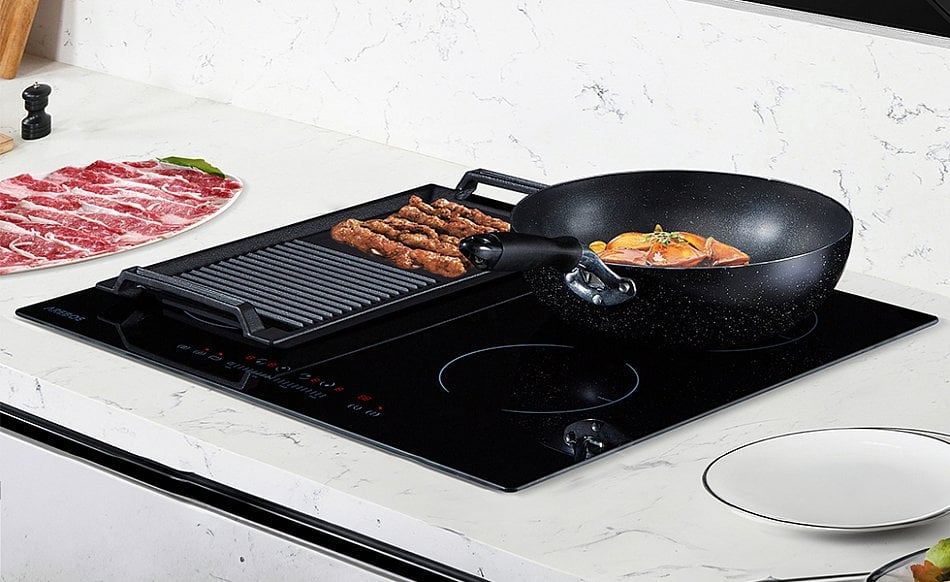
Understanding Induction Cooking
Before we address whether cast iron works with induction, it's crucial to understand how induction cooking operates. Unlike traditional gas or electric stoves that use direct heat, induction cooktops use electromagnetic fields to heat cookware directly. This means that the cookware itself becomes the heat source, offering rapid and efficient heat transfer. For induction cooking to work, the cookware must be magnetic, as the electromagnetic field relies on this characteristic to generate heat.
Cast Iron's Unique Properties
Cast iron is renowned for its durability, heat retention, and even cooking capabilities. These properties make it a staple in professional kitchens around the world. Cast iron cookware is inherently magnetic due to its iron content, which means it is compatible with induction cooktops. The robust nature of cast iron ensures that it can withstand the demands of induction cooking, providing consistent and reliable performance.
The Science Behind Compatibility
When you place a cast iron pan on an induction cooktop, the magnetic field induces an electric current in the iron. This resistance generates heat, allowing the pan to become hot and cook food efficiently. The even distribution of heat across the cast iron surface ensures that food is cooked uniformly, a crucial factor for achieving culinary perfection. For more insights on using cast iron with induction, you can explore this external link.
Benefits of Using Cast Iron with Induction
Induction-friendly cast iron offers several advantages that resonate with kitchen professionals:
- Efficiency: Induction cooktops heat up quickly and adjust temperatures precisely, allowing chefs to have greater control over their cooking processes.
- Energy Savings: The direct transfer of heat to the cookware minimizes energy loss, making induction cooking more energy-efficient than traditional methods.
- Safety: Since the cooktop itself doesn't get hot, there's a reduced risk of burns, making induction cooking safer in bustling kitchen environments.
- Durability: Cast iron's robust construction ensures it can withstand the rigors of professional kitchens, maintaining its performance over time.
Choosing the Right Cast Iron Cookware
Not all cast iron cookware is created equal, and selecting the right pieces for induction cooking requires careful consideration. Here are some factors to keep in mind:
- Flat Base: Ensure that your cast iron cookware has a flat base to maximize contact with the induction cooktop for efficient heat transfer.
- Weight: While cast iron is naturally heavy, choosing appropriately sized pieces that you can handle comfortably is essential.
- Seasoning: Regular seasoning of cast iron cookware enhances its non-stick properties and helps maintain its condition.
Tips for Successful Induction Cooking with Cast Iron
To achieve the best results with cast iron on induction, consider the following tips:
- Preheat Gradually: Gradually increase the heat to prevent thermal shock and ensure even heating.
- Use a Heat Diffuser: If your cast iron cookware has an uneven base, using a heat diffuser can improve heat distribution.
- Avoid Dragging: To prevent scratching the induction cooktop's surface, lift your cast iron cookware instead of dragging it.
Exploring Culinary Possibilities
The compatibility of cast iron with induction opens a world of culinary possibilities for kitchen professionals. From searing meats to simmering sauces, the versatility of cast iron enhances the cooking experience. For more inspiration on using cast iron with induction, you can explore these resources: Induction-Friendly Cast Iron Pans and How to Use Cast Iron on Induction.
Conclusion
In the ever-evolving landscape of professional kitchens, understanding the dynamics of cookware and cooking methods is paramount. The answer to the question, 'Does cast iron work with induction?' is a resounding yes. Cast iron's magnetic properties make it an ideal partner for induction cooktops, offering efficiency, precision, and durability. Embracing this compatibility allows kitchen professionals to elevate their culinary creations and optimize their cooking processes. For further reading on this topic, you can visit this external link.
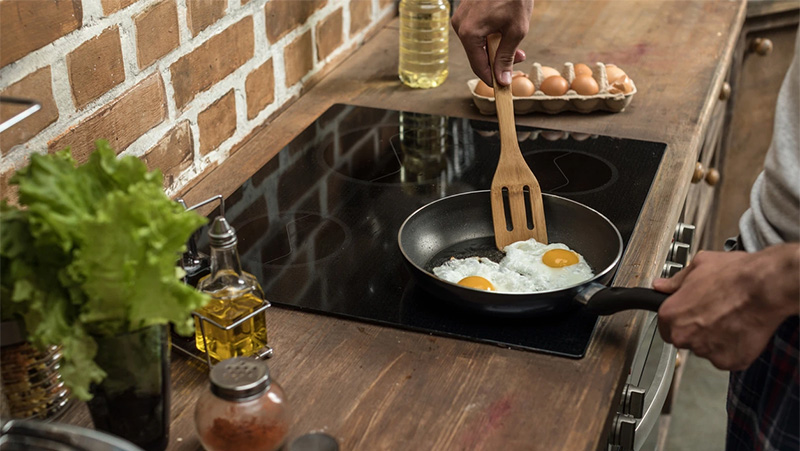
FAQs
Can I use any cast iron pan on an induction cooktop?
Yes, as long as the cast iron pan has a flat base and is magnetic, it should work effectively on an induction cooktop.
Does the weight of cast iron affect its performance on induction?
The weight of the cast iron doesn't affect its performance on induction, but it's important to choose a size that you can handle comfortably.
How do I prevent my cast iron pan from scratching the induction cooktop?
To prevent scratching, lift your cast iron cookware instead of dragging it across the cooktop. Additionally, ensure the bottom of the pan is clean and free from debris.

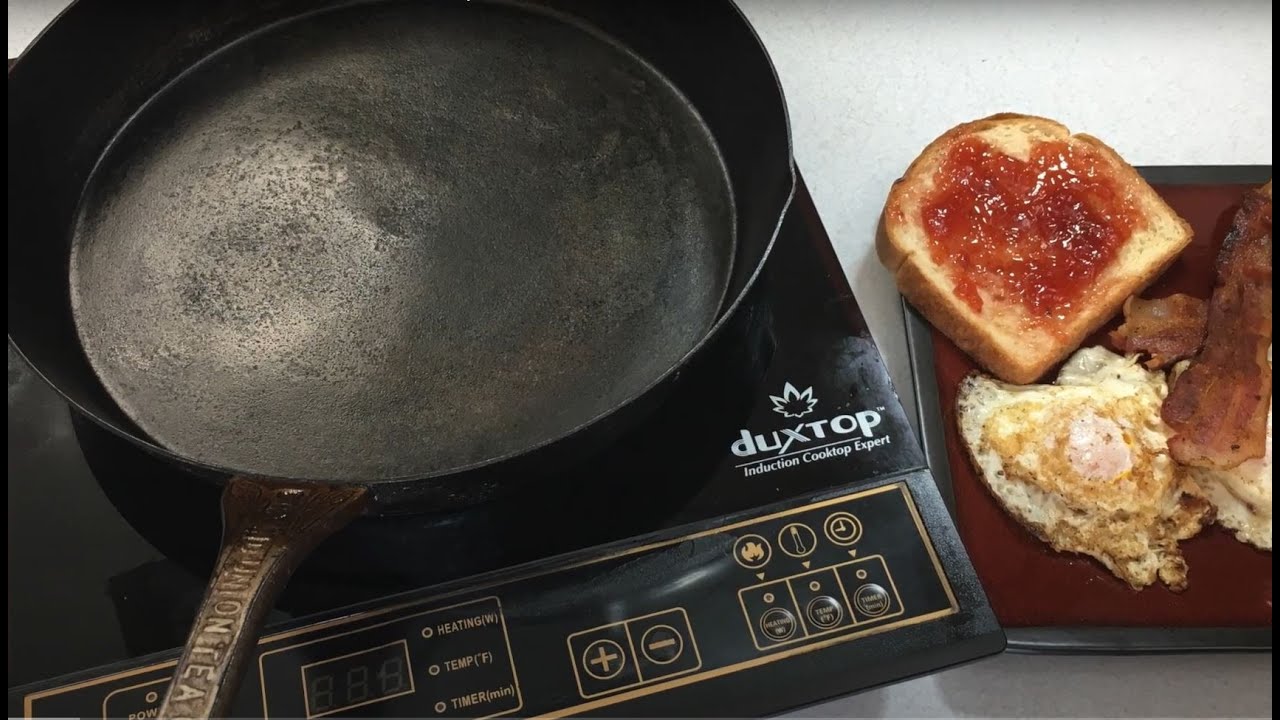


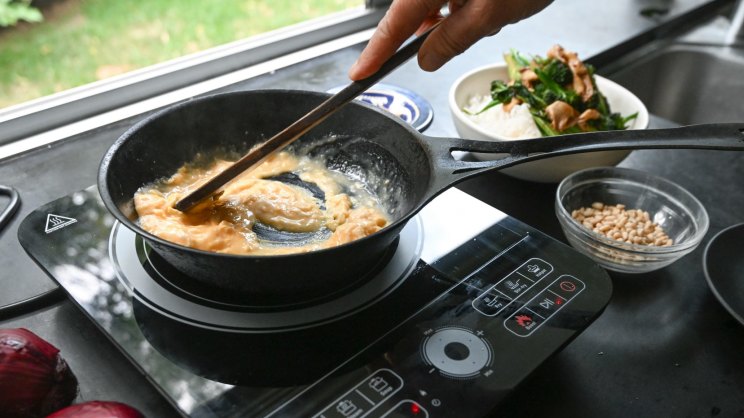
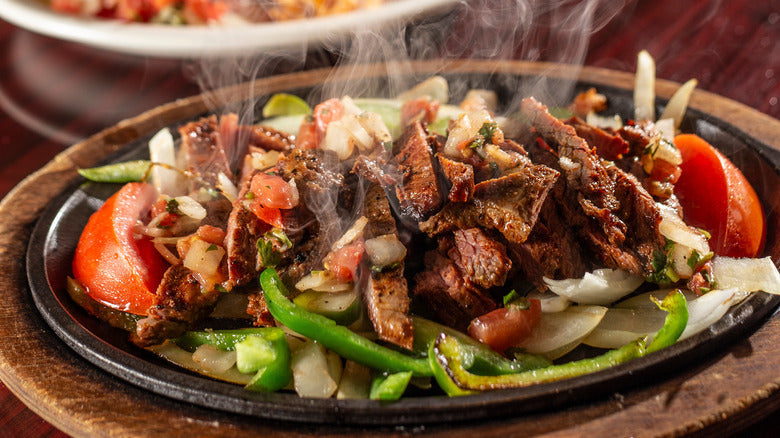
Leave a comment
This site is protected by hCaptcha and the hCaptcha Privacy Policy and Terms of Service apply.